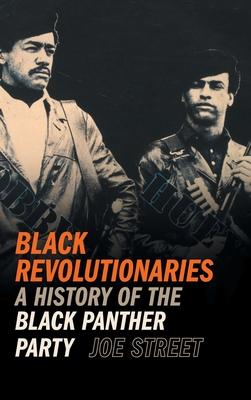Black Revolutionaries is an accessible yet rigorously argued history of the Black Panther Party (BPP), one of the emblematic organizations of the 1960s. Joe Street highlights the complexity of the BPP's history through three key themes: the BPP's intellectual history, its political and social activism, and the persecution its members endured. Together, these themes confirm the BPP's importance in understanding Black America's response to white oppression in the 1960s and 1970s.
Based on a wealth of archival material, Black Revolutionaries reveals the enduring importance of leftist political philosophy to 1960s and 1970s radicalism, and how the BPP helps us to understand more deeply the role of public space and public protest in the 1960s.Street shows how the BPP were key to the transformation of political activism in the post-civil rights era. As the BPP faced the psychological and organizational impacts of FBI surveillance, police repression, and imprisonment, Street examines how these negative forces helped to shape and destroy the BPP. Most significantly, this history demonstrates that an understanding of African American grassroots politics and protest, racial injustice, and police brutality in the post-civil rights era is only comprehensible through engagement with the BPP's history. This is a definitive study of the BPP for students, academics, and the general reader.
Black Revolutionaries is an accessible yet rigorously argued history of the Black Panther Party (BPP), one of the emblematic organizations of the 1960s. Joe Street highlights the complexity of the BPP's history through three key themes: the BPP's intellectual history, its political and social activism, and the persecution its members endured. Together, these themes confirm the BPP's importance in understanding Black America's response to white oppression in the 1960s and 1970s.
Based on a wealth of archival material, Black Revolutionaries reveals the enduring importance of leftist political philosophy to 1960s and 1970s radicalism, and how the BPP helps us to understand more deeply the role of public space and public protest in the 1960s.Street shows how the BPP were key to the transformation of political activism in the post-civil rights era. As the BPP faced the psychological and organizational impacts of FBI surveillance, police repression, and imprisonment, Street examines how these negative forces helped to shape and destroy the BPP. Most significantly, this history demonstrates that an understanding of African American grassroots politics and protest, racial injustice, and police brutality in the post-civil rights era is only comprehensible through engagement with the BPP's history. This is a definitive study of the BPP for students, academics, and the general reader.Hardcover
$133.28